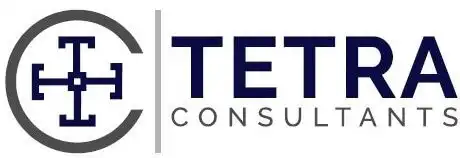7 Accounting and Tax Considerations of a Malta Offshore Company

Contact Us
Setting up a Malta offshore company is rather easy due to the government incentives. However, there are tax and accounting obligations that have to be adhered to annually. Hence, in order to start a business in Malta, it is important to understand the account and tax obligations of a malta offshore company. In this article, our team at Tetra Consultants has highlighted 6 accounting and tax considerations of a Malta offshore company before you register company in Malta.

1. Annual return filing requirement:
It is required to file the annual return where it includes a summary document of the directors, secretary, shareholders and share capital at a point in time. The annual returns should be submitted within 42 days from the date of incorporation of the firm.
2. Accounting obligations for a Malta offshore company:
According to the Maltese Companies Act 1995, Malta offshore companies are required to maintain accurate and up-to-date accounts reflecting the financial position of the company. This must be done annually with the first set of accounts including more than 6 months and less than 18 months from the incorporation of Malta.
3. Company Tax Rate:
Malta is an ideal place to start an offshore company due to its attractive corporate taxes in the European Union. The standard corporate tax rate is 35%. In addition, there is the ‘full-imputation tax system in Malta, where companies are entitled to a tax credit equivalent to the tax paid by the company upon a distribution of profits. With such tax incentives, the effective tax rate decreases to about 10%.
As a ‘participatory holding’ company in Malta, the company will be entitled to a full tax refund that was paid by the company, It would be received by the shareholders of the company.
Whereas trading companies trading with the EU, are subject to a value-added tax of 18%.
Tax benefits where companies in malta are able to enjoy are exemption of inheritance tax, wealth tax, annual property tax, interest tax, dividends tan and withholding tax on dividends.
4. Tax Accounting for Companies:
Tax accounting is required for the tax refunds. Hence, it is important to classify income into the tax accounts namely the Foreign Income Account (FIA), Maltese Taxed Account (MTA), Immovable Property Account (IPA), Final Tax Account (FTA) and Untaxed Account (UA).
The Foreign Income Account (FIA) includes royalties, dividends, capital gains, interest and other passive income earned outside Malta.
Maltese Taxed Account (MTA) includes profits that have incurred tax but are not included in the FIA.
Immovable Property Account (IPA) includes profits from transfers or other activities related to immovable property situated in Malta.
Final Tax Account (FTA) – profits that are exempt from tax and which are also exempt in the hands of the shareholders upon distribution are allocated to this account.
Untaxed Account (UA) accounts for the remaining profits (or losses) that were not allocated to the preceding tax accounts.
Profits will have to be allocated into the respective tax accounts in order for the refundable tax credit system. The dividends which are distributed from the FIA and MTA are eligible for shareholder’s tax refunds. However, distributions from the FTA, IPA and UA are not eligible.
In order to be eligible for the tax refunds, shareholders would have to register to receive the tax refunds. The tax refunds will depend on the nature of income and its source.
5. Refundable Tax Credit System:
The refundable tax credit system in Malta is attractive as shareholders are entitled to tax refund amounts to 6/7ths of the tax paid by the company. Hence, this reduces the maximum effective tax rate to a low rate of 5% after-tax refunds. With the double taxation relief for foreign tax incurred, it can further reduce the effective tax rate to 0%.
In the case where the profits distributed consist of passive interest or royalties, the tax refund will be reduced to 5/7ths of the tax charge paid by the company. Hence, this reduces the maximum effective tax rate to 10% after-tax refunds. Passive interest and royalty income refer to income that is not earned from the trade or royalty income that has not suffered or suffered any foreign tax, directly, by way of withholding or otherwise, at a rate of tax that is less than 5%.
If a double taxation refund is claimed on a foreign income account, then the refund will only be 2/3rds of the total tax paid. However, if it is claimed on the Flat Rate Foreign Tax Credit, the tax refund would be 2/3rds of the Malta tax paid.
6. Double Tax Agreements:
Malta has signed double taxation treaties with over 70 countries, which includes almost all of the important Organisation for Economic Co-operation and Development (OECD) countries. The double tax agreements not only ensure that tax would not have to be incurred in two countries but also act as a tool to promote investment from certain countries.
7. Tax Returns:
It is required to file an Income Tax Return with the International Tax Unit (ITU) / Inland Revenue Department (IRD). Companies are required to file the income tax return by 31st March of the following year if their accounting year-end is from January to June. Whereas the rest will have to file income tax returns within 9 months after their accounting reference date.
Conclusion:
The information about accounting and tax obligations you should know about Malta offshore company may seem intimidating. With Tetra Consultants by your side, the registration process of your business in Malta will be smooth and hassle-free. Our comprehensive service package includes planning and strategizing with our clients to select a suitable business entity, completing the registration process, obtaining required licenses, opening a corporate bank account, and ensuring your compliance with the government regulations.
Contact us to find out more about how to register company in malta and our dedicated and experienced team will revert within the next 24 hours.
Tetra Consultants
Tetra Consultants is the consulting firm that works as your advisor and trusted partner in your business expansion. We tell our clients what they need to know, instead of what they want to hear. Most importantly, we are known for being a one-stop solution for our valued clients. Contact us now at enquiry@tetraconsultants.com for a non-obligatory free consultation. Our team of experts will be in touch with you within the next 24 hours.





